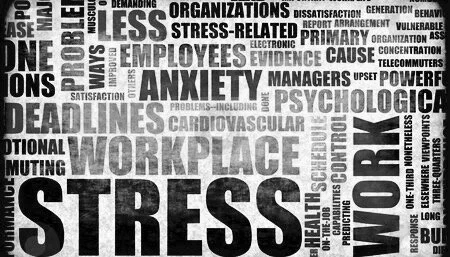In a world that never sleeps, where success is often measured by external achievements, there exists a silent undercurrent that many of us grapple with – the subtle and often overlooked presence of high-functioning depression. Sometimes, it is difficult to acknowledge the undeniable truth: the pace of modern life, coupled with societal expectations, can cast shadows on even the brightest minds.
In this age of constant connectivity and unending aspirations, mental health has become a poignant focal point. It's time we illuminate the often misunderstood terrain of high-functioning depression, a clandestine companion to the outwardly successful.
Beyond the facade of productivity and curated happiness lies a narrative often left untold. Today, we unravel that narrative in this blog post. We'll explore the nuances of depression, shed light on dysthymia's persistent presence, and decipher the enigma that is smiling depression. So, read on!
1. What is Depression?
Depression, often described as a dark cloud that hangs over one's life, is a mood disorder that affects how we feel, think, and handle daily activities. It's not just a passing bout of sadness; it's a persistent state of deep despair that can color every aspect of our existence. From a lack of energy to feelings of worthlessness, depression is a complex and multifaceted challenge that demands understanding and empathy.
2. What is Dysthymia?
Dysthymia, on the other hand, is a subtler but persistent form of depression. It's like a constant drizzle that dampens the spirit, lasting for years and often flying under the radar. People with dysthymia may go about their lives, meeting responsibilities, but the joy and enthusiasm that color a vibrant life seem elusive. Recognizing this chronic low-grade depression is crucial for seeking the right support and intervention.
3. What is Smiling Depression?
Now, imagine a scenario where someone is smiling on the outside but battling storms within—this is what we call smiling depression. It's the art of wearing a mask, concealing the inner turmoil behind a facade of happiness. Those grappling with smiling depression often excel in their professional and social lives, making it challenging for others to perceive the invisible weight they carry. Understanding this paradox is key to offering support to those who suffer in silence.
5 Signs You Have High-Functioning Depression
a. Relentless Perfectionism
In the high-stakes world we live in, striving for excellence is commendable. However, when the pursuit of perfection becomes an unyielding demand on oneself, it may be a red flag for high-functioning depression. Those grappling with this form of depression often set impossibly high standards, and despite achieving success, the internal critic remains unsatisfied. Every accomplishment is overshadowed by an underlying belief that they could have done better. The constant quest for flawlessness can be mentally and emotionally exhausting.
b. Persistent Fatigue
Imagine a life where you manage to fulfill your responsibilities, excel in your career, and engage in social activities, yet an inexplicable fatigue lingers. High-functioning depression often manifests as a silent thief of energy. Despite external accomplishments, the emotional toll of inner turmoil can leave individuals feeling drained and fatigued. This persistent weariness is a sign that should not be ignored, as it may indicate the need for a closer examination of one's mental and emotional well-being.
c. Masked Emotions
One of the most puzzling aspects of high-functioning depression is the ability to wear a mask of normalcy. Individuals adept at smiling depression are masters at concealing their emotional pain behind a facade of happiness. This can make it particularly challenging for friends, family, and colleagues to recognize the internal struggles they face. The carefully crafted external persona becomes a shield, preventing others from glimpsing the vulnerability and pain that lie beneath the surface.
d. Overachievement
Success can be a powerful distraction from internal struggles. Those with high-functioning depression may channel their emotional turmoil into a relentless pursuit of overachievement. Excelling in their professional and personal lives becomes a coping mechanism, a way to validate their worth and temporarily silence the nagging self-doubt. While their accomplishments may be impressive, it's crucial to recognize when success becomes a shield rather than a genuine source of fulfillment.
e. Social Withdrawal
Contrary to the image of a vibrant social life, individuals with high-functioning depression may experience a subtle yet profound withdrawal from deep emotional connections. While they may maintain an active social calendar, the inner world becomes increasingly isolated. Engaging in surface-level interactions becomes a way to avoid the vulnerability of true connection. This social withdrawal can create a profound sense of loneliness, even amidst a bustling social life, as the internal struggles remain hidden from view.
Conclusion
As we navigate the intricate web of mental health, it's essential to recognize and acknowledge the various faces of depression and seek depression assessment and therapy. High-functioning depression, with its veiled nature, demands a compassionate understanding from both ourselves and those around us. If you or someone you know resonates with these signs, remember that seeking support is a courageous step toward healing.
At Integrative Psychotherapy Toronto, we acknowledge the intricacies of mental health and provide a secure environment for exploration and recovery. Our range of therapeutic approaches encompasses Eye Movement Desensitization and Reprocessing (EMDR), Somatic Psychotherapy, and Psychedelic Coaching, among others. Reach out to us for further details about our services!
Let's extend this dialogue, dismantle societal misconceptions, and foster a supportive community that navigates life's highs and lows together. Ultimately, comprehension and empathy serve as the links binding us in our shared human experience.







